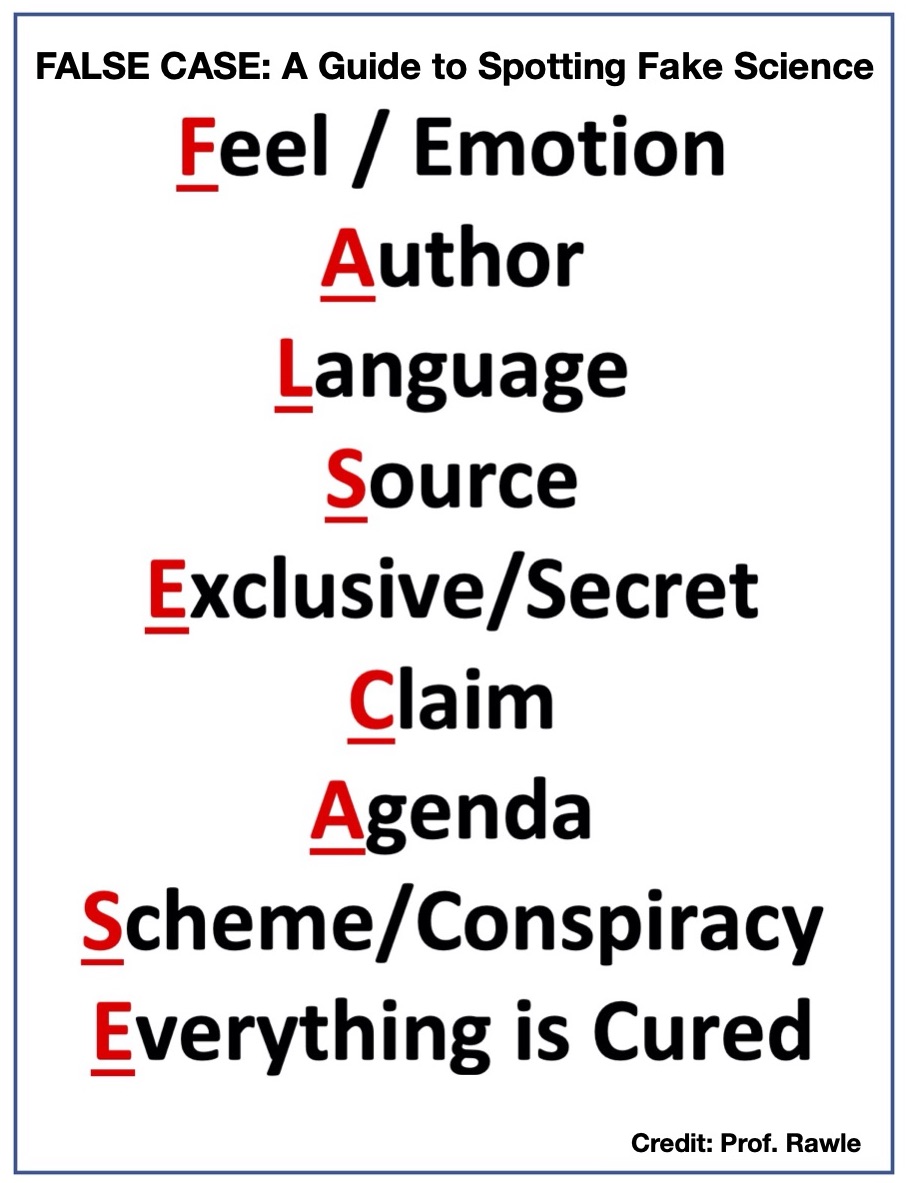
I gave a guest talk recently on identifying fake science news. Here is a framework we used: FALSE CASE 1/8
@CaulfieldTim @DrJenGunter @ScienceUpFirst @JonathanStea #ScienceUpFirst
@CaulfieldTim @DrJenGunter @ScienceUpFirst @JonathanStea #ScienceUpFirst

F: Feeling/Emotion. What feeling does the report trigger? Fake/sensational science news often uses explosive language to trigger emotions
A: Author. Who is it? What is their position? Who are they speaking for? 2/8
A: Author. Who is it? What is their position? Who are they speaking for? 2/8
L: Language. What language is being used? Is it "sciencey-sounding" but actually just long words strung together? Is it inflammatory? Vague?
S: Source. What is the source of the study? Peer reviewed journal? Is there no source? 3/8
S: Source. What is the source of the study? Peer reviewed journal? Is there no source? 3/8
E: Exclusive/Secret. Does the person claim that this scientific discovery is a secret? Will you become part of an exclusive group once they tell you the secret?
C: Claim. Evaluate the claim carefully. What exactly is the scientific claim? What evidence supports the claim? 4/8
C: Claim. Evaluate the claim carefully. What exactly is the scientific claim? What evidence supports the claim? 4/8
A: Agenda. What is the agenda of the people promoting this scientific claim? What do they hope to gain? (Remember Andrew Wakefield had a financial motive - and several of his "patients" were litigants in Richard Barr's lawsuit against vaccine manufacturers) 5/8
S: Scheme/Conspiracy. Do the people behind this claim say there is a broader scheme or conspiracy? For example, do they say that they have the cure to cancer and that big Pharma is hiding it? (This is a common claim on alternative health websites). 6/8
E: Everything is cured. Do the people behind this new discovery claim that it cures anything and everything? 7/8
This list is just a start - there are many more things to look for (like proper experimental design, controlling for placebo effect, proper randomization, replicates, making sure conclusions match results...the list is long). But we start our discussion with "FALSE CASE"
8/8
8/8
• • •
Missing some Tweet in this thread? You can try to
force a refresh




